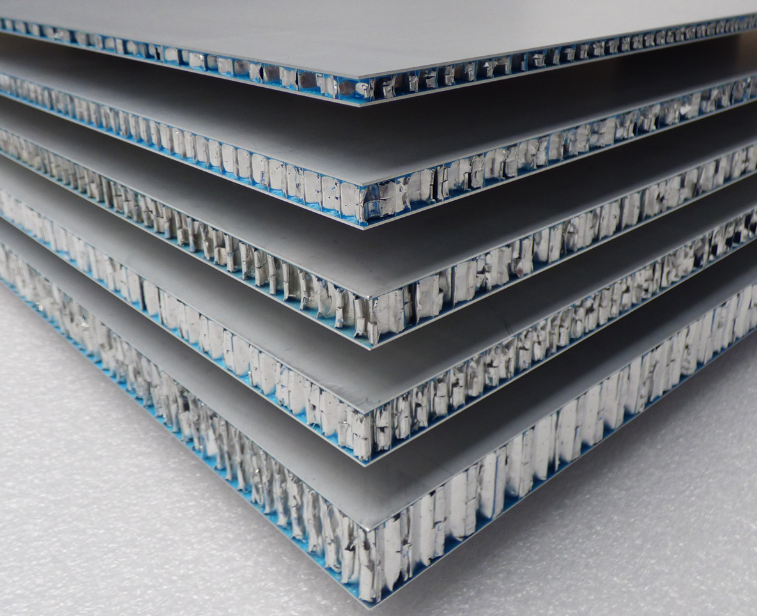Views: 202 Author: Julong Publish Time: 2023-05-29 Origin: aluminum panel systems manufacturer








Fiberglass honeycomb panels are examples of lightweight materials. It possesses both lightness and strength. It has mostly supplanted traditional wood and metal materials in a variety of applications. It may replace colored steel plates, aluminum plates, stainless steel plates, and so on, and solve the drawbacks of easy rust, corrosion, heat conduction, easy deformation, hard cleaning, and so on. The honeycomb panel possesses strong self-cleaning, anti-ultraviolet, anti-static, and other capabilities after appropriate surface treatment. It cuts handling activities and thus manufacturing costs significantly.
The fiberglass honeycomb panel is a typical sandwich structure; the upper and lower skins are reinforced sheets mixed with glass fiber and resin, and the core material is honeycomb-shaped plastic (usually polypropylene material). The core and fiberglass skin are usually bonded together using adhesives (thermoset FRP) or thermal bonding (thermoplastic FRP).
Fiberglass honeycomb sandwich panels have been widely employed in autos, ships, construction, sports, entertainment, and other industries due to their exceptional qualities. It has significantly altered the material qualities of these industries while also lowering their development costs.
A box truck for transporting dry freight using honeycomb panels as a body material can greatly reduce transportation costs.
Fiberglass honeycomb panels are especially suitable for all kinds of camper vehicles that require lightweight and strong construction.
Applying honeycomb panels to lightweight and strong sports products greatly improves the comfort of participants.
Fiberglass honeycomb panels can be used as exterior walls, interior walls, partitions, ceilings, and floor materials in buildings.
Honeycomb panels can be applied to tables, chairs, cabinets, beds, etc. in places such as homes, offices, and camping sites.
The use of honeycomb composite materials in the structures above the ship deck not only simplifies installation but also reduces the overall weight of the hull.